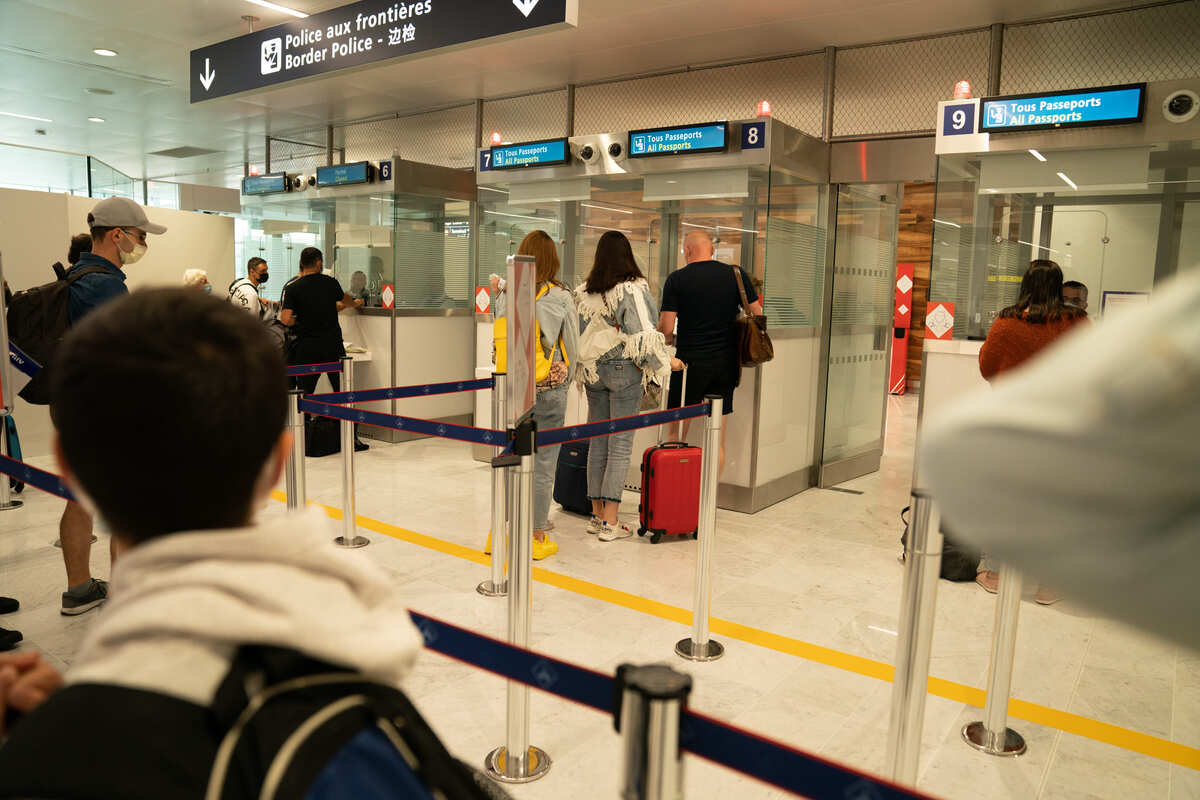UK (Parliament Politic Magazine) – British travellers to Europe are set to face stringent post-Brexit regulations, including fingerprinting and facial scanning, as warned by Members of Parliament. These draconian measures, imposed by the European Union, will be implemented next year. Additionally, UK citizens will be required to provide an extensive range of personal information, such as details about their health conditions and travel plans within the continent, even before embarking on their journey.
The Automated System Will Register Travelers From The UK
This revelation comes amidst the current chaos at the Port of Dover, where long queues have already formed, offering a glimpse into the potential summer scenario of 2024. The European Union’s Entry-Exit System (EES), perceived by many as retaliation for Brexit, is an automated system designed to register travellers from the UK and other non-EU countries whenever they cross an EU external border.
Initially planned for introduction in October, the implementation of the EES has been postponed until next year, with a potential enforcement date as early as May 2024.
Non-EU visitors planning to travel to Europe will now be required to apply in advance for a visa-style permit through the European Travel Information and Authorisation System (ETIAS). This new system aims to streamline the process and ensure the safety and security of all travelers.
All Non EU Visitors Are Subject To A Fee Of €7
Under this system, all non-EU visitors will be subject to a fee of €7 (approximately £6) and will need to provide personal information online. This information includes their names, addresses, state of health, criminal records, reasons for travel, and the address of their first-night stay.
The decision on whether to grant the permit will vary, ranging from a few minutes to a maximum of 30 days. This timeframe will depend on the complexity of the application and the individual circumstances of the traveler.
These proposals have significant implications for UK residents planning to travel to Europe, particularly those using ports such as Dover, the Channel Tunnel terminal in Folkestone, and the Eurostar terminal in St Pancras station.
ETIAS System Will Be Implemented On Travelers From The UK
By implementing the ETIAS system, Europe aims to enhance security measures while ensuring a smooth and efficient travel experience for all visitors. Eurostar has admitted that during peak times, 80 percent of passengers will need to go through the system. Natalie Elphicke, the Conservative Member of Parliament for Dover, expressed her concerns about the upcoming European checks, stating that there needs to be an urgent plan in place to avoid chaos at the border.
David Jones, the Conservative Member of Parliament for Clwyd West and a member of the Commons European Scrutiny Committee, believes that Brussels could alleviate the problems by allowing Britons to submit their biometric data before traveling and then verifying it at dedicated facilities across the UK. However, he also noted that this would require legislative change from the European Commission, which is known for its intransigent bureaucracy.
In response to the potential issue of long queues, Committee Chairman Sir Bill Cash stressed the importance of immediate action. He urged all relevant parties, including the Government, the French government, and the European Commission, to work together and find effective solutions to address this matter.
Read More: France and Britain Battle It Out For Europe’s A.I. Crown
The Data Collected Can Be Misused
Dr. Ilia Siatitsa, a senior legal officer for Privacy International, strongly criticized the proposed measure, comparing it to a surveillance tactic reminiscent of “Big Brother.” She further elaborated on the issue, stating that unlike changing a passport, altering one’s fingerprint or face is not a viable option. Once data is collected, it can be easily misused and its applications can be expanded, as we have seen in the past.
He explained, “We are facing significant space constraints. If we do not have the regulations changed, it will become increasingly challenging for us to manage the process, resulting in a much slower operation.”
A spokesperson from the Home Office stated, “We acknowledge the concerns of British travelers and the industry regarding the European Union’s new travel requirements. We are actively collaborating with our European counterparts to ensure that their plans do not cause unnecessary delays for British citizens traveling abroad. Furthermore, we are actively engaged with the French Government, port authorities, and operators to minimize any potential disruptions.”


